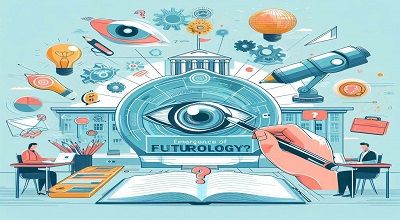Emergence of Futurology
The emergence of futurology and its role in education planning is an important and evolving field. That focuses on anticipating and preparing for future developments and trends in education. Here’s a breakdown of this concept:
1. Emergence of Futurology:
Futurology, or the study of the future, has been around for centuries in various forms. However, it has gained prominence in recent decades as societies face rapidly changing technological, social, and economic landscapes. The emergence of futurology as a discipline is a response to the need for proactive. Forward-thinking approaches to address the challenges and opportunities of the future.
2. Role in Education Planning:
Futurology plays a significant role in education planning by helping educators, and policymakers. Institutions adapt to an uncertain and rapidly evolving educational landscape. Here are some key aspects of this role:
- Anticipating Future Trends: Futurology helps education stakeholders anticipate future trends and developments in various areas. Including technology, employment, demographics, and societal needs. By identifying these trends, education planners can make informed decisions about curriculum development, resource allocation, and infrastructure planning.
- Curriculum Design: Education planners can use futurology to design curricula. That are forward-thinking and responsive to emerging skills and knowledge demands. For example, preparing students for careers in fields like artificial intelligence, and sustainability. Cybersecurity requires insight into the future job market and industry requirements.
- Adapting Teaching Methods: The methods and tools of education are constantly evolving. Futurology helps educators stay ahead of the curve by identifying innovative teaching methods and technologies that can enhance learning experiences. This may include personalized learning platforms, online education, or virtual reality simulations.
- Workforce Preparation: As the job market changes, education planners can use futurology to ensure. That students are equipped with the skills and competencies needed for the workforce of the future. This might involve developing programs that focus on critical thinking, problem-solving, adaptability, and digital literacy.
More here…
- Infrastructure and Resources: Planning for educational infrastructure and resource allocation. Such as building new schools, investing in technology, and training teachers should be guided by an understanding of how education will evolve in the coming years. Futurology can provide insights into these needs.
- Policy Development: Policymakers can use futurology to shape education policies that are agile and responsive to changing circumstances. For example, policies related to standardized testing, and teacher certification. Or education funding can be adapted to align with future educational needs.
- Global Perspective: Futurology in education planning is not limited to a single region or country. It takes into account global trends and challenges. Making it possible to adapt education systems to compete on an international scale.
Summary
Overall, the emergence of futurology in education planning is about fostering a proactive, flexible, and responsive educational system. That equips students with the skills and knowledge they need to thrive in an uncertain and rapidly changing world. It emphasizes the importance of long-term vision and adaptability in education to prepare individuals for a future that may look quite different from the present.
